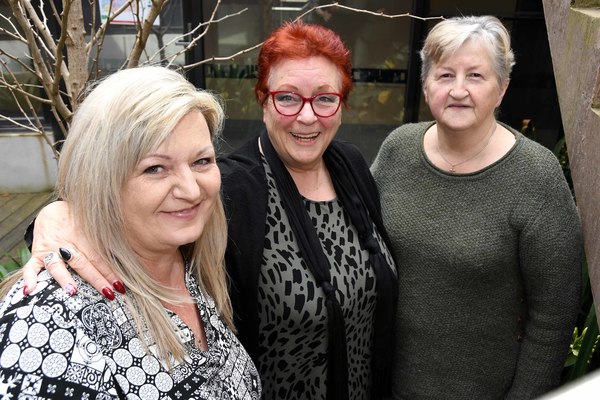
By Danielle Kutchel
On a cool morning in Pakenham, an unlikely group meets for a seminar and brunch. They seem to come from different walks of life, but from their chatter it soon becomes clear that they have one thing in common.
They’re part of the Pakenham and Surrounding District Kinship Care Support Group – a group that cares for the carers.
That can be anything from simply lending an ear, to a hug during a flood of tears, or even providing the names and numbers of professionals who might be able to help.
The group meets on a monthly basis and also has a Facebook group for extra support, and is open to both formal and informal carers.
It’s a safe space of love and understanding for a community that often struggles to get recognition.
Kinship care is different to foster care, says carer Marylyn Broomhall. It occurs when family members such as grandparents or persons of significant importance within the family, like strong family friends, take on the full time care and raising of a child in the family whose own parents can no longer perform that task. It is the fastest growing form of out of home care in Victoria.
For many grandparents, kinship care comes at a time when they had thought they were ready to settle into the new role of being a grandparent.
That role is lost as they slip back into the routine of parenthood.
Says Marylyn: “We’re emotionally attached to these children; they’re part of our family. We care deeply from a heart perspective.
“But life is not what you thought it was going to be. Life gets turned upside down, and you’ve just got to deal with that.”
With that change come challenges, including the loss of a relationship with the child’s parent, or the carer’s child.
“Dealing with a toxic parent is a negative in our careling’s life. They still blame you. Most of the time they will say ‘you stole my child from me’. Most of the time, the relationship doesn’t work,” Ms Broomhall says.
“The other thing we lose is we cannot grandparent these kids, and that’s such a sadness in our lives. We have other grandchildren, and they notice. It can create jealousy.
“Then there are things like wills, how do we accommodate our careling in the will and not cause friction in the rest of the family?” Ms Broomhall explains.
Kinship carers must navigate a complex system of therapists, social workers and government officers. Some of those who spoke to the Gazette told stories of children being taken from them by “the system”, only to be returned months later in a bad way with language loss and behavioural challenges.
Sometimes, children arrive on their carers’ doorstep with clothes and shoes that are too small. Babies arrive with a bottle, but no nappies. Support from the government, including financial assistance, varies between carers.
The Victorian Ombudsman conducted an investigation into the financial support provided to kinship carers in 2017.
The investigation found that “lack of financial support to carers can destroy the sustainability of kinship placements”.
In September, Eastern Victoria Region MP Melina Bath raised concerns in State Parliament that none of the seven recommendations from the ‘Financial Support Provided to Kinship Carers Report’ have been implemented.
However, the State Government said it had completed the actions needed to implement the recommendations.
A spokesperson for the Department of Health and Human Services said the State Government was providing more funding, training and support for kinship carers.
The Victorian Government recently released details of its Strong Carers, Stronger Children strategy, to be implemented over the next five years through a series of action plans that will be developed through consultation with stakeholders. The first action plan is set to be implemented from 2020.
In its 2019-20 State Budget, the State Government also committed funding to a kinship care model which provides early and flexible support to carers and the children in their care, such as flexible brokerage that provides assistance to meet any extraordinary expenses faced.
Nevertheless, the Pakenham support group helps when it all becomes too much, Ms Broomhall says.
“Each person has an individual story and some of those stories need an hour to work through because that carer is going through some massive trauma.
“These meetings that we have, they’re essential for that person to be able to voice their frustrations in a safe environment where they’re not being pre-judged.”
Anyone interested in getting in touch with the Kinship Care Support Group can look up the Facebook group, Kinship Carers Local to Pakenham.







